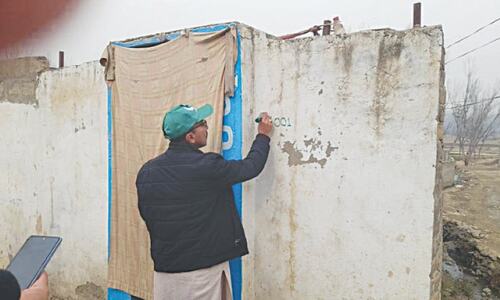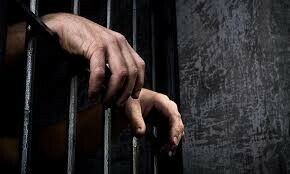BAGHDAD, July 28: Three women bombers blew themselves up on Monday in a crowd of shia pilgrims in Baghdad, one of a string of attacks in Iraq that killed at least 56 people, undermining hopes of a drop in violence.
Scores of people were also wounded in the attacks, which come after a relative lull in the sectarian violence that has ravaged the country since February 2006, when attackers blew up a mosque in the central city of Samarra.
The triple attack in Baghdad killed at least 25 pilgrims as they headed to a shrine for a major religious ceremony.
Another 27 people died and 126 others were wounded in a suicide bombing during a protest rally in the northern oil city of Kirkuk, and gunfire in a panicked stampede that followed, local officials said.
Among the dead in the Baghdad bombings were women and children, security and hospital officials said, adding that about 70 other people were injured.
The violence drew criticism from the White House.
“The United States condemns the violent attacks on innocent Iraqis,” National Security Council spokesman Gordon Johndroe said.
“We urge the Iraqi people and government to respond with calm determination to the threat from violent extremists who seek to destabilise the country,” he said.
The bombers struck in the Karrada district of central Baghdad as pilgrims were making their way on foot towards Kadhimiyah in the north of the Iraqi capital, site of a shia programme on Tuesday.
“At least 25 people were killed and more than 70 were wounded in three suicide attacks, probably by females suicide bombers,” a police official said.
On Sunday, gunmen shot dead seven pilgrims in Madin, a town south of Baghdad, despite tight security for Tuesday’s ceremony that is expected to attract up to one million worshippers.
Systematic violence – suicide bombings and sectarian killings – have dropped sharply in the capital since a peak in 2006, but Iraqi police are worried about a wave of attacks in the city of six million people.
Maj-Gen Qassim Atta, spokesman for city security, told reporters that his force had information regarding the possibility of attacks targeting pilgrims during this year’s festival.
“We ask people to help in all ways with our security forces,” Atta said, adding that up to one million people were expected.
Checks have been particularly stringent amid what appears to be growing trend of using women in bombings, which have claimed hundreds of lives across the volatile country.
Protesters targeted
The attack in Kirkuk targeted a crowd of people who were protesting a controversial provincial election law, police said.
The suicide bomber detonated explosives amid the crowd, causing a stampede which prompted guards to open fire, officials said.
“The victims were people who ran away after the explosion, and guards opened fire, shooting into the air,” said Najat Hassam, a senior member of the Kurdistan Democratic Party (KDP).
“More people then responded to the gunfire with more shooting.”
Kirkuk is often the scene of communal tensions among Kurds, Arabs and Turkmens, and the latest violence was sparked by protests over the controversial legislation for planned provincial elections.
The draft is currently being reviewed by the Iraqi parliament but many Kurdish and shia ministers are opposed to the bill.
Kurds in particular are worried that the law will fail to address issues relating to how the provincial council of Kirkuk should be constituted.
The question is important to them because it could affect ownership of the northern province’s oil resources, claimed by both Arabs and Kurds.
Another three men and a woman were killed in a roadside bombing near Baquba, north of Baghdad, police said.—AFP














































Dear visitor, the comments section is undergoing an overhaul and will return soon.